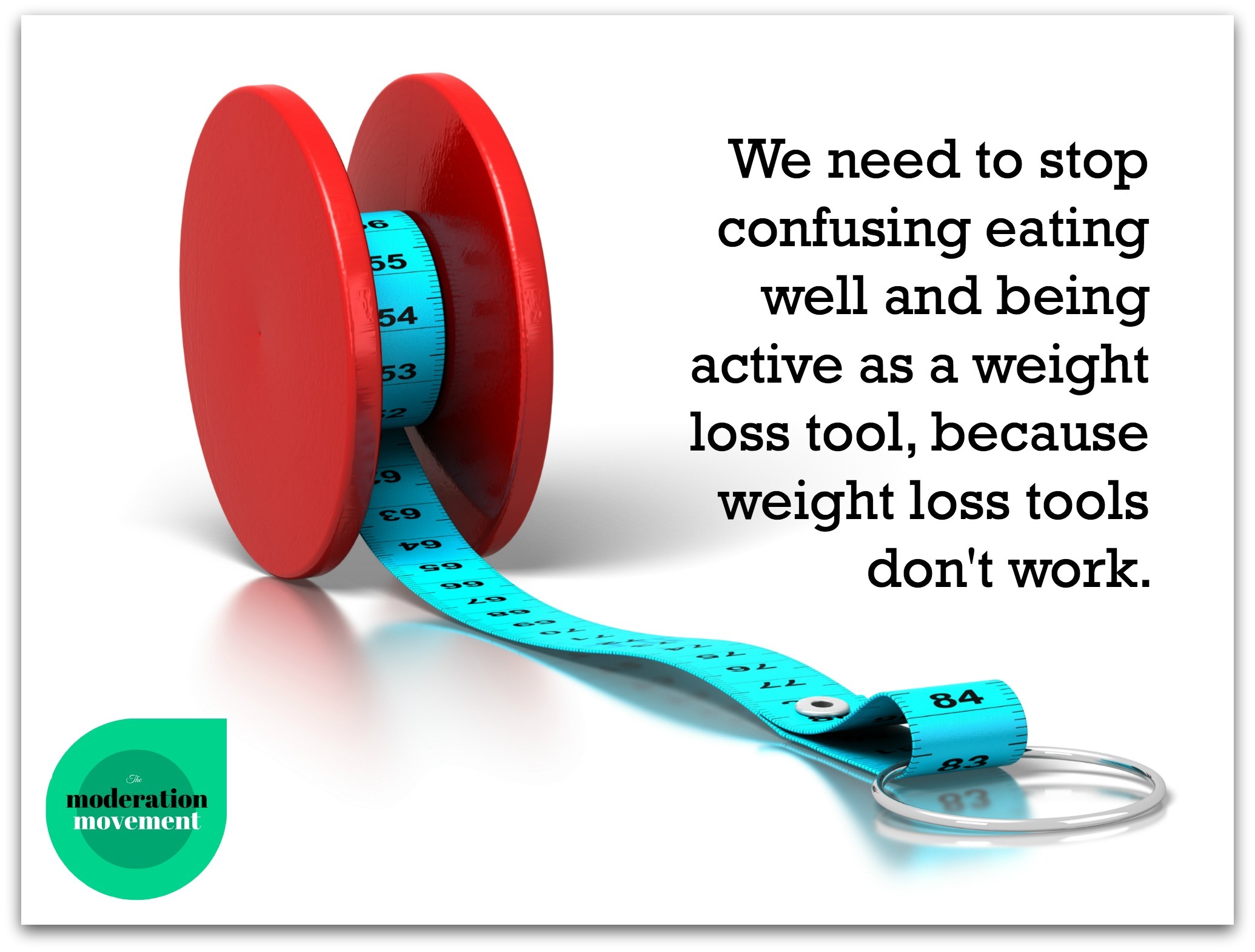We need to stop confusing eating well and being active as a weight loss tool, because weight loss tools don’t work.

When it comes to health, we need to stop talking about weight loss and instead talk about health behaviours.
Being active and eating well are just two of many factors that influence health.
I am writing this after reading this quote in an article…
“Of course there are risks associated with weight loss but there are massive risks associated with not being physically active and healthy eating.”
It’s not difficult to construe this message as being active and eating well equates to weight loss. Even if you argue that’s not at all what is implied, if eating well and being active are part of what improves health, why do we even need to mention weight loss?
While the article makes it clear that diets for weight loss do not work long-term for most people, it does mention that there are some “success” stories of longterm weight loss – wait for it, drum roll – 10,000 Americans have successfully keep weight off (at least 14kg) for more than 5 years. 10,000 Americans is 0.00003% of the population!! Of course not every one is trying to lose weight, but even if we just counted the estimated 25-50% of Americans who are dieting at any one time, this is still only 0.0001% of the population. The fact that American stats are being quoted in an Australian article is that there is no record of longterm successful weight loss in this country.
The article also reports that “even a long-term weight loss of five per cent had health benefits”, while this may be true, in my almost 14 years of practice, I have not met anyone with a high body weight who is happy to just lose 5% of their weight. I’m pretty confident that the overwhelming majority of dietitians, doctors or other health professionals would attest to this.
Of course there are many reasons why most people would not settle for a 5% weight loss, including (but not exhaustive);
- Continued use of the (unhelpful) BMI scale
- The media constantly pushing the “obesity = death” message; losing 5% of body weight is not going change most people’s BMI category.
- New diets appearing all the time that promise they hold the key to weight loss
- The multi billion dollar diet industry selling the weight loss dream
- The media publicising the latest weight loss research and diets that go along with the new research, often from doctors or well known health experts.
- The incessant advertising of weight loss programs and products on TV
- The multi billion dollar pharmaceutical industry and its proliferation of weight loss surgery and drugs that promise (but often don’t deliver) signifiant weight loss.
- A culture that equates thinness with worthiness, happiness, attractiveness, success and health.
As long as we talk about weight loss along side eating and activity behaviours, we continue to support the idea that changing these behaviours is about weight loss when it should be about health.
The non-diet approach is a paradigm that enables people to pursue health through changing behaviours without focusing on weight loss. The approach is not anti-weight loss, just anti the pursuit of weight loss through dieting; some people may lose weight as a side-effect, but some people may not. The non-diet approach is part of the Health At Every Size paradigm.
